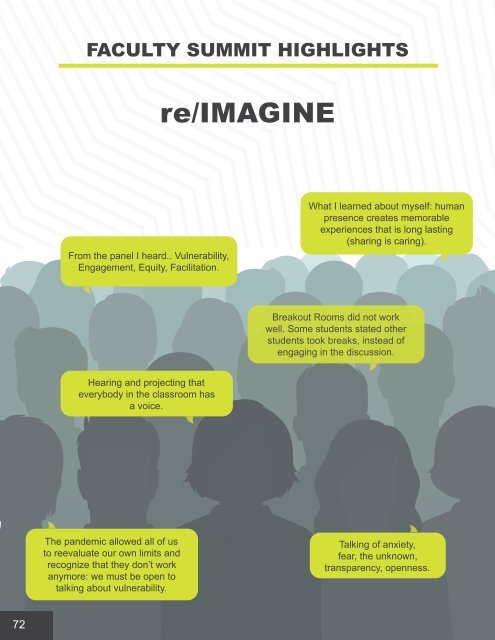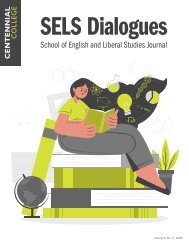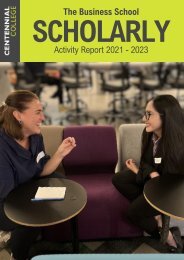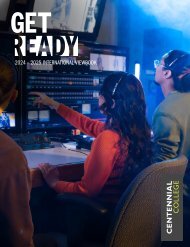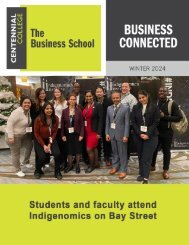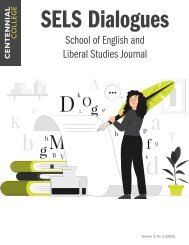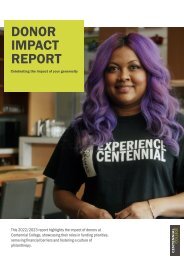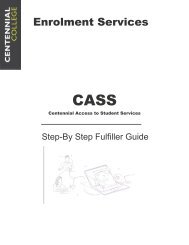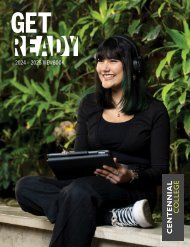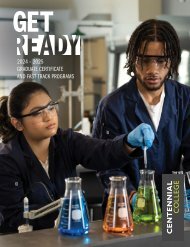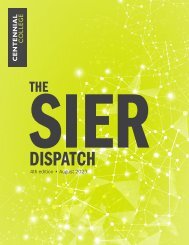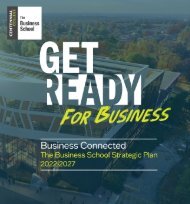The Teaching and Learning Innovation Digest - May 2023
Welcome to a truly special edition of the Teaching and Learning Innovation Digest! Our seventh annual academic publication has assumed an incredibly meaningful shape and form for a number of reasons. Not only did we receive an enthusiastic response with over 30 submissions via our institutional broadcast, but we also have consciously and intentionally embraced the principles of Universal Design for Learning by attempting to represent and celebrate the varied forms of expressions therein. From reflective essays, poetry, visual and performing arts, podcasts, video conversations to scholarly work, academic and applied research, news and updates, and interviews, this is truly a power-packed publication!
Welcome to a truly special edition of the Teaching and Learning Innovation Digest! Our seventh annual academic publication has assumed an incredibly meaningful shape and form for a number of reasons. Not only did we receive an enthusiastic response with over 30 submissions via our institutional broadcast, but we also have consciously and intentionally embraced the principles of Universal Design for Learning by attempting to represent and celebrate the varied forms of expressions therein. From reflective essays, poetry, visual and performing arts, podcasts, video conversations to scholarly work, academic and applied research, news and updates, and interviews, this is truly a power-packed publication!
You also want an ePaper? Increase the reach of your titles
YUMPU automatically turns print PDFs into web optimized ePapers that Google loves.
FACULTY SUMMIT HIGHLIGHTS<br />
DISCOURSE<br />
Early Childhood Education Program,<br />
School of Community <strong>and</strong> Health Studies<br />
re/IMAGINE<br />
Pauline Camuti-Cull <strong>and</strong> Marah Gardner Echavez<br />
Faculty, Early Childhood Education (ECE), School of Community <strong>and</strong> Health Studies (SCHS)<br />
From the panel I heard.. Vulnerability,<br />
Engagement, Equity, Facilitation.<br />
What I learned about myself: human<br />
presence creates memorable<br />
experiences that is long lasting<br />
(sharing is caring).<br />
Breakout Rooms did not work<br />
well. Some students stated other<br />
students took breaks, instead of<br />
engaging in the discussion.<br />
<strong>The</strong> link provided below offers an example<br />
of the rich discourse that we have<br />
experienced working with the Pedagogist<br />
Network of Ontario <strong>and</strong> as Postsecondary<br />
Pedagogists. <strong>The</strong> Pedagogist Network is<br />
a collaborative initiative led by Western<br />
University (Veronica Pacini-Ketchabaw) <strong>and</strong><br />
(R<strong>and</strong>a Khattar), York University (Cristina<br />
Delgado-Vintimilla), the University of Toronto<br />
(Fikile Nxumalo), Toronto Metropolitan<br />
University (Nicole L<strong>and</strong>), <strong>and</strong> Capilano<br />
University (Kathleen Kummen). As Early<br />
Childhood Educators <strong>and</strong> Postsecondary<br />
Pedagogists, we gather bimonthly to think<br />
together about readings that include the<br />
works of Foucault, Winnicott, <strong>and</strong> Agamden to<br />
“unfold” inquiries that emerge.<br />
our learning spaces. In silent reflection we<br />
wonder what this means. We are made to<br />
speculate if such change is possible without<br />
dismantling <strong>and</strong> reconstructing the systems <strong>and</strong><br />
related foundational principles that define our<br />
learning spaces.<br />
<strong>The</strong>se gatherings are instrumental<br />
in deepening our underst<strong>and</strong>ing<br />
<strong>and</strong> motivate us to disrupt our<br />
conventional ways of building<br />
systems of knowledge <strong>and</strong> knowing.<br />
Hearing <strong>and</strong> projecting that<br />
everybody in the classroom has<br />
a voice.<br />
<strong>The</strong>se gatherings are instrumental in<br />
deepening our underst<strong>and</strong>ing <strong>and</strong> motivate us<br />
to disrupt our conventional ways of building<br />
systems of knowledge <strong>and</strong> knowing. We work<br />
together to create more equitable <strong>and</strong> human<br />
ways of learning <strong>and</strong> living together. We hope<br />
that this article will motivate you to read<br />
our contribution to the fourth edition of the<br />
Pedagogist Network of Ontario Magazine that<br />
is dedicated to this collective Re-turn.<br />
<strong>The</strong> p<strong>and</strong>emic allowed all of us<br />
to reevaluate our own limits <strong>and</strong><br />
recognize that they don’t work<br />
anymore: we must be open to<br />
talking about vulnerability.<br />
Talking of anxiety,<br />
fear, the unknown,<br />
transparency, openness.<br />
In this re/TURN we are inspired to bring to<br />
question: What does it mean to re/TURN?<br />
What are we returning to? How do we<br />
want to re/TURN? We dare to imagine the<br />
pedagogical possibilities post-p<strong>and</strong>emic that<br />
extend beyond our familiar <strong>and</strong> comfortable<br />
pre-p<strong>and</strong>emic practices. Discursively <strong>and</strong><br />
materially, we are encouraged to Re-imagine<br />
72<br />
Submission Material<br />
73


